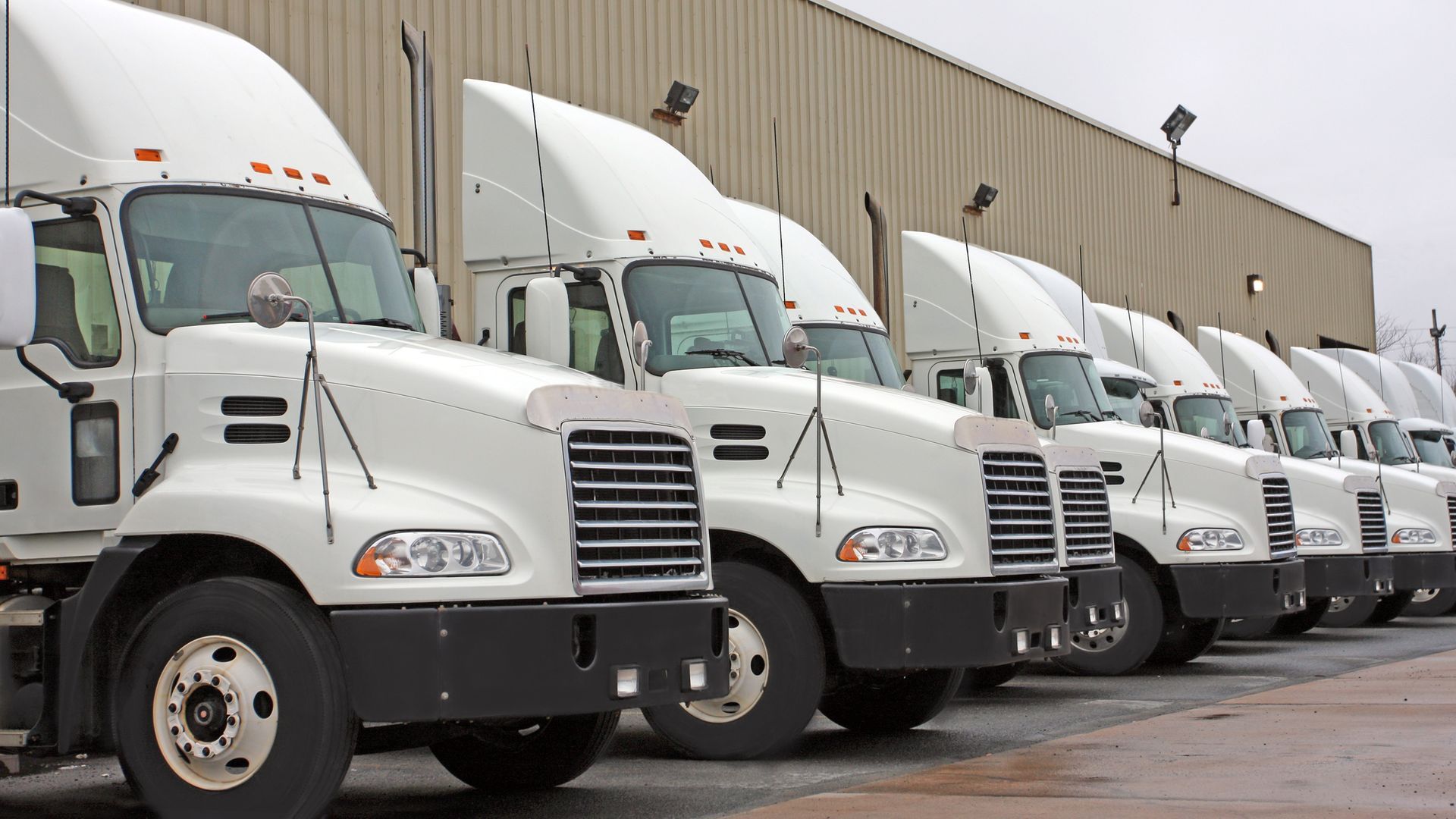This Trucking Company Trusted Their IT to Handle Cybersecurity. Criminals Roamed Their Network for Over a Year.
"Hello! Your files have been stolen and encrypted."
That's the message that greeted a trucking company CEO when he walked into his office last November. Not exactly the Monday morning pick-me-up anyone wants to see on their computer screen.
But here's what really gets me fired up about this story: this wasn't some mom-and-pop operation that barely knew what a password was. This was a legitimate trucking company with a small IT staff. They had security tools. They were getting alerts. They thought they were covered.
They were dead wrong.
The Shock of "But We Have IT!"
When I started digging into what happened, the CEO kept saying the same thing: "We have an IT department that handles our security." He said it with the kind of confusion you'd expect from someone who just discovered their smoke detector had been chirping in an empty room for months.
And that's exactly what had been happening.
For over a year – not weeks, not months, but over a year – criminals from Russia, China, and Vietnam had been roaming freely through their network gathering information. The security alerts were screaming warnings every single day, but they were going to a folder nobody monitored. Their "Password123" credential was like leaving the front door wide open with a welcome mat.
The forensics investigation painted a picture that blew my mind. These weren't opportunistic hackers stumbling around. They were methodical, patient, and had been studying this company's operations longer than some employees had been working there.
The Brutal Truth About IT vs. Cybersecurity
Here's what that CEO learned the hard way, and what every trucking leader needs to understand: having IT doesn’t necessarily mean your cybersecurity is being managed well.
IT and cybersecurity are both technology related, but they’re two separate and distinct specialties. Your IT person can keep your printers working and your email running, but that doesn't make them qualified to detect advanced persistent threats or respond to nation-state actors.
It's like expecting your fleet mechanic to also be your safety compliance officer. Sure, they both work on keeping your trucks road-ready, but the expertise required is completely different.
What We Always Find (And What Will Shock You)
When we conduct cybersecurity risk assessments, the disbelief on executives' faces is always the same. They thought their IT department was handling security, but suddenly they're discovering vulnerabilities that would make a criminal's job embarrassingly easy.
Unpatched software vulnerabilities everywhere.
- Critical business data sitting unencrypted like an open book.
- Employee passwords stored in browsers where anyone with access to that computer can see them.
- Customer information and personally identifiable data just hanging out in the digital equivalent of an unlocked filing cabinet.
Then there's the access problem. Half the company has admin privileges they don't need, and employees can access system areas that have nothing to do with their jobs. When a criminal gets in, they don't hit a wall – they hit a highway with no speed limits.
Network segmentation? What's that? Many companies we assess have everything connected to everything else. It's like having a house where every room connects to every other room, so if someone breaks into your garage, they can waltz right into your bedroom.
The Real Cost of Assumptions
That trucking company I mentioned earlier? We're still rebuilding their entire infrastructure. The forensics investigation is complete, but the other damages are hard to put a price on.
- Their reputation took a hit.
- Operations were disrupted.
- Customer trust was suffering.
And here's the kicker: most of what happened to them could have been prevented with proper cybersecurity measures that had nothing to do with IT support.
Your Wake-Up Call Starts Now
Every trucking executive reading this needs to ask themselves a hard question: How do you actually know your cybersecurity is being handled properly?
If your answer is "because I have IT," you need an independent perspective. You can't self-evaluate your own security posture – it needs to be assessed by an unbiased third party who can give you the real picture without any conflicts of interest.
The only way to know if you're truly protected is to have an independent cybersecurity expert take a hard look at your entire operation. Not your IT person. Not the vendor who sold you your current setup. Someone with no skin in the game except telling you the truth.
A proper third-party cybersecurity risk assessment will uncover the gaps you don't know exist. It'll show you where criminals could walk right in. It'll reveal whether those security tools you're paying for are actually working or just taking up space on your network.
Because here's what I know for certain: cybercriminals are coming for your business.
Not maybe.
Not eventually.
They're already trying.
The only question is whether they'll find a fortress or a house of cards.
Don't wait for your own "Password123" moment to find out which one you've built.
Melanie
Melanie Padron is a risk management expert and cybersecurity speaker who specializes in protecting trucking companies from cyber threats. She's the Director of Business Development at IT ArchiTeks, a veteran-owned cybersecurity and IT solutions provider based in Texas.












